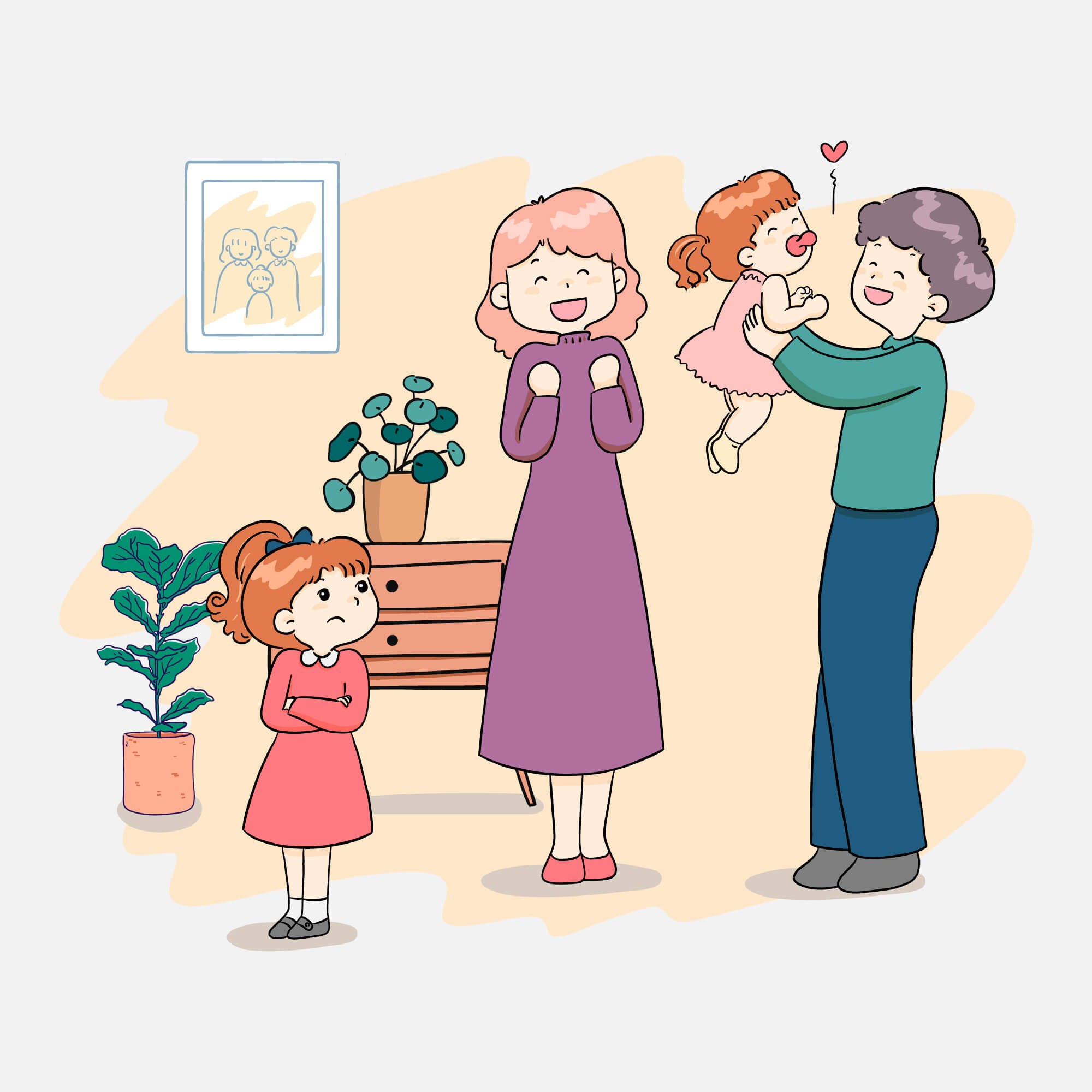Covet implies desiring something already possessed by another, while envy is longing for what someone else has. Covet is about possession, envy about comparison.
Jealousy, envy, and coveting are complex human emotions that are often used interchangeably. In reality, they have distinct meanings and characteristics. Jealousy typically involves fearing the loss of something that is already ours, while envy stems from desiring something that someone else possesses. Coveting is an intense desire to possess a specific thing that someone else has and wanting to take it from them. Understanding the differences between these emotions can help us navigate our own feelings and relationships more effectively.
Key Takeaways:
- Jealousy, envy, and coveting are unique emotions with distinct meanings and characteristics.
- Jealousy involves fearing the loss of something already possessed, while envy stems from desiring what others have.
- Coveting is an intense desire to possess a specific thing that someone else has and wanting to take it from them.
- Understanding these differences can help us navigate our own emotions and relationships more effectively.
- Recognizing and addressing jealousy and envy can lead to personal growth and healthier coping mechanisms.
The Difference Between Jealousy and Envy
Jealousy and envy are often used interchangeably, but they have distinct meanings. Jealousy typically arises when we fear losing something that is already ours, such as a relationship or possession. It involves a sense of possessiveness and a fear of being replaced. On the other hand, envy occurs when we desire something that someone else possesses. It focuses more on what we lack rather than what we already have.
To further understand the differences between jealousy and envy, let’s explore their definitions:
| Jealousy | Envy |
|---|---|
| Jealousy is an emotion that arises from the fear of losing something that is already ours. | Envy is an emotion that arises from the desire to possess something that someone else has. |
| It involves a sense of possessiveness and a fear of being replaced. | It focuses more on what we lack rather than what we already have. |
| Examples: Feeling jealous when your partner talks to someone attractive. | Examples: Feeling envious of a friend’s new car. |
| Synonyms: Possessiveness, protectiveness, suspicion. | Synonyms: Desire, longing, yearning. |
Recognizing the differences between jealousy and envy is crucial to better understand and manage these emotions in our own lives. While jealousy relates to fear of losing what is already ours, envy is driven by the desire for something we do not possess. By acknowledging these distinctions, we can develop healthier coping mechanisms and nurture positive and fulfilling relationships.
Understanding Jealousy

Jealousy is a complex and powerful emotion that can arise in various situations. It often stems from a perceived threat or fear of losing something that we already possess. Jealousy can manifest in different forms, such as possessiveness, suspicion, or resentment towards others.
One of the key characteristics of jealousy is the involvement of a perceived rival or threat. This can be a person, a situation, or even an idea that we believe poses a risk to what we consider rightfully ours. Jealousy triggers an emotional response, which can range from discomfort to intense feelings of anger, sadness, or insecurity.
To better understand jealousy, let’s consider some examples. Imagine two close friends who spend a lot of time together. When one of them starts developing a new friendship, the other may experience jealousy due to the fear of being replaced. Similarly, in a romantic relationship, jealousy can arise when one partner perceives a potential threat to the exclusivity of their bond.
Recognizing our own jealous tendencies and understanding the root causes behind them is crucial for navigating this complex emotion. By acknowledging and addressing our jealousy, we can develop healthier coping mechanisms and maintain more balanced relationships.
Characteristics of Jealousy
- Possessiveness: Jealousy often involves a strong desire to possess and control what we perceive as ours.
- Suspicion: Jealousy can lead to heightened levels of suspicion and constant questioning of others’ motives or intentions.
- Comparison: Jealousy is often triggered by comparing ourselves to others and feeling a sense of inadequacy or fear of not measuring up.
- Protectiveness: Jealousy is accompanied by a desire to protect what we believe is rightfully ours, whether it be a relationship, possession, or achievement.
- Emotional intensity: Jealousy can evoke intense emotions, ranging from insecurity and anger to sadness and anxiety.
Understanding the characteristics and underlying causes of jealousy can help us gain insight into our own emotions and behaviors. It allows us to develop empathy and compassion towards others who may be experiencing jealousy as well. By fostering self-awareness and open communication, we can navigate jealousy in a healthy and constructive way, ultimately fostering stronger and more fulfilling relationships.
Exploring Envy

Envy is a complex emotion that arises when we desire something possessed by someone else. It often stems from feelings of inadequacy or a sense of lacking in comparison to others. Envy can be triggered by various factors, such as social media comparisons, material possessions, professional success, relationships, and talent/skills. While envy is a natural human emotion, dwelling on it can be detrimental to our well-being. Channeling these emotions into motivation for personal growth and self-improvement can be a healthier approach.
Examples of Envy
- Feeling envious of a friend’s luxurious vacation photos on social media
- Desiring a coworker’s promotion and feeling resentful about their success
- Wishing to have the same level of talent or skill as a renowned musician
- Envying a neighbor’s expensive car and feeling inadequate about one’s own vehicle
Characteristics of Envy
When experiencing envy, several characteristics are often present:
| Characteristics | Description |
|---|---|
| Comparison | Envy typically involves comparing oneself to others and focusing on what they possess that we desire. |
| Desire | Envy is fueled by a strong desire to possess what someone else has, whether it’s physical possessions, achievements, or qualities. |
| Inadequacy | Feelings of inadequacy and a sense of lacking are common in experiences of envy. |
| Resentment | Envy can lead to resentment towards the person who possesses what we desire, which can strain relationships. |
| Motivation | While envy is often viewed negatively, it can also serve as a motivator for personal growth and improvement. |
Recognizing the characteristics of envy can help us better understand and manage this complex emotion.
The Similarities and Distinctions Between Jealousy and Envy
Jealousy and envy are complex emotions that often intertwine, but they also have distinct characteristics that set them apart. Understanding the similarities and distinctions between these emotions can provide valuable insight into our own feelings and relationships.
Similarities Between Jealousy and Envy
Both jealousy and envy involve a comparison between oneself and another person, and they stem from feelings of inadequacy or insecurity. These negative emotions can arise when we perceive others as having something that we desire or when we believe we might lose something that is important to us. In both cases, jealousy and envy can have a significant impact on our thoughts, emotions, and behaviors.
Additionally, jealousy and envy can both serve as indicators of our desires, aspirations, and areas for personal growth. They can highlight what we value and what we feel is lacking in our own lives, potentially motivating us to pursue our goals and make positive changes.
| Similarities | Jealousy | Envy |
|---|---|---|
| Comparison between oneself and another | Yes | Yes |
| Arise from feelings of inadequacy or insecurity | Yes | Yes |
| Indicate areas for personal growth | Yes | Yes |
Distinctions Between Jealousy and Envy
While jealousy and envy have similarities, they also have notable distinctions that shape their nature and effects.
Jealousy is typically focused on the fear of losing something that we already possess, such as a relationship, a position, or a possession. It arises from a sense of possessiveness and a fear of being replaced. Jealousy is often specific to a particular situation or person and may involve feelings of betrayal, suspicion, and protectiveness.
On the other hand, envy is characterized by the desire for something that someone else possesses. It is driven by a sense of longing and a belief that obtaining what others have will bring happiness or fulfillment. Envy can be more general and encompass various aspects of life, such as material possessions, social status, achievements, or talents.
| Distinctions | Jealousy | Envy |
|---|---|---|
| Focused on fearing the loss of something possessed | Yes | No |
| Desire for what others possess | No | Yes |
| Specific to a particular situation or person | Yes | No |
Recognizing these distinctions allows us to better understand and distinguish between jealousy and envy, enabling us to address and manage these emotions more effectively.
The Negative Effects of Jealousy and Envy
Jealousy and envy, when left unchecked, can have detrimental effects on our well-being and relationships. These negative emotions can significantly impact our mental and emotional health, leading to a range of harmful effects.
The Harmful Effects of Jealousy
Jealousy, fueled by fear and insecurity, can have various negative consequences:
- Feelings of discontentment and dissatisfaction with our own lives
- Bitterness towards others who possess what we desire
- Social withdrawal and isolation due to excessive comparison and competition
- Increased stress levels and anxiety
- Decreased self-esteem and self-worth
- Deterioration of existing relationships due to possessiveness and mistrust
The Harmful Effects of Envy
Envy, driven by a longing for what others have, can also have detrimental effects:
- Constant comparison of ourselves to others, leading to feelings of inadequacy
- Obsessive thoughts and rumination about what we lack
- Strained relationships as envy can breed resentment and bitterness
- Diminished self-confidence and self-esteem
- Decreased satisfaction and enjoyment of our own achievements
- Unhealthy behaviors towards others driven by malicious envy
It is crucial to address jealousy and envy in a healthy manner to prevent these harmful effects from taking a toll on our well-being and relationships.
By recognizing and acknowledging these negative emotions, we can take proactive steps towards personal growth and self-improvement. Here are some strategies for addressing jealousy and envy:
- Practice self-reflection and identify the root causes of jealousy and envy
- Cultivate gratitude for what we have and focus on our own strengths
- Acknowledge the achievements and accomplishments of others without comparing ourselves
- Seek support from trusted individuals such as therapists or mentors
- Channel these emotions into motivation for personal growth and self-improvement
By addressing jealousy and envy in a healthy manner, we can mitigate their negative effects and create a more positive and fulfilling life.
Transforming Jealousy and Envy into Tools for Self-Improvement
Jealousy and envy are often regarded as negative emotions, but they can actually be catalysts for personal growth and self-improvement. When harnessed and channeled effectively, they can motivate us to push boundaries and achieve great things.
Using Jealousy for Self-Improvement
Jealousy, when transformed into a positive force, can inspire us to strive for what others have achieved. Instead of being consumed by resentment or bitterness, we can use jealousy as a powerful motivator to set goals and work towards them. By examining the underlying reasons for our jealousy and identifying the qualities or accomplishments we admire in others, we can gain valuable insights into our own desires and aspirations. This self-reflection can guide us towards personal growth and drive us to develop the skills and characteristics we admire in others.
Using Envy for Self-Improvement
Envy, like jealousy, can be transformed into a tool for self-improvement. When we feel envious of someone else’s success or possessions, it reveals our own desires and aspirations. Instead of letting envy breed negativity, we can use it as a catalyst to push ourselves further. By studying and learning from those we envy, we can gain inspiration and insights that can fuel our own journey towards success. Envy can push us to develop new skills, work harder, and strive for personal achievements.
It’s important to note that transforming jealousy and envy into tools for self-improvement requires a shift in mindset and a focus on personal growth. It’s not about competing or comparing ourselves to others, but rather using their achievements as inspiration to become the best versions of ourselves. By embracing these emotions and using them as sources of motivation, we can embark on a journey of continuous self-improvement.
Transforming jealousy and envy into tools for self-improvement begins with self-awareness and embracing our own aspirations. Instead of being consumed by negativity, we can use these emotions as fuel to achieve our goals and become the best versions of ourselves.
Cultivating Empathy and Understanding in Relationships
Jealousy and envy can have a profound impact on relationships, and understanding how to navigate these complex emotions is key to maintaining healthy connections. By cultivating empathy and understanding, we can develop stronger bonds and effectively address jealousy and envy within our relationships.
Open communication plays a crucial role in fostering empathy. By openly discussing our feelings of jealousy or envy with our partners, we create an environment where both parties feel heard and understood. Honest conversations can help uncover underlying insecurities and provide an opportunity for reassurance and support.
Trust-building exercises are also valuable in cultivating understanding. Building a foundation of trust allows individuals to feel secure and less threatened by external factors. This can reduce feelings of jealousy and envy by reinforcing the belief that the relationship is strong and resilient.
Self-reflection is another essential tool in addressing jealousy and envy. Taking time to examine our own thoughts and emotions helps us gain insight into the root causes of these feelings. By understanding our own triggers and insecurities, we can more effectively communicate with our partners and work towards resolving conflicts.
Empathy: Stepping into Others’ Shoes
One of the most powerful ways to address jealousy and envy is through empathy. Empathy allows us to put ourselves in the shoes of our partners, recognizing their emotions and understanding their perspectives. When we can empathize with our partners’ experiences, we foster a sense of compassion and reduce the intensity of negative emotions.
Practicing empathy involves active listening and validating our partners’ feelings. It requires setting aside our own biases and judgments, focusing on understanding rather than justifying our own emotions. By doing so, we create space for open and honest dialogue, enhancing mutual understanding and connection.
Comparison of Jealousy and Envy in Relationships
| Emotion | Jealousy | Envy |
|---|---|---|
| Definition | The fear of losing what is already possessed | The desire for what someone else possesses |
| Focus | On protecting and preserving what is already owned | On desiring what is lacking |
| Emotional Response | Fear, possessiveness, and insecurity | Desire, longing, and dissatisfaction |
| Impact on Relationships | Can lead to mistrust, resentment, and conflict | Can create feelings of inadequacy and rivalry |
This table provides a concise comparison of jealousy and envy in relationships. It highlights the distinct definitions, focuses, emotional responses, and impacts on relationships. By understanding these differences, we can better navigate and address jealousy and envy within our own relationships.
Overcoming Jealousy and Envy
Jealousy and envy can be challenging emotions to deal with, but with self-awareness and proactive steps, it is possible to overcome them. Here are some strategies to help you cope with jealousy and envy:
1. Recognize and acknowledge your insecurities
Start by understanding the root causes of your jealousy and envy. Reflect on why certain situations trigger these emotions in you. By recognizing and acknowledging your insecurities, you can begin to address them effectively.
2. Practice self-compassion
Be kind and understanding towards yourself. Remember that it is natural to experience jealousy and envy, and it does not make you a bad person. Treat yourself with compassion and extend the same empathy you would offer to a friend facing similar emotions.
3. Reframe negative thoughts and comparisons
Challenge negative thoughts and comparisons that fuel jealousy and envy. Instead of focusing on what others have, shift your perspective to gratitude for what you have achieved and possess. Celebrate your own accomplishments and unique qualities.
4. Seek support from trusted individuals
Don’t hesitate to reach out to therapists, mentors, or close friends for guidance and support. Talking about your feelings with someone who understands can provide valuable insights and help you navigate through these challenging emotions.
5. Engage in self-reflection and personal growth
Take time to reflect on your core values, goals, and aspirations. Invest your energy in personal growth and self-improvement, focusing on your strengths and passions. By channeling your emotions into positive actions, you can redirect your energy away from jealousy and envy.
6. Practice gratitude and mindfulness
Cultivate a sense of gratitude for the blessings in your life. Practice mindfulness to stay present and avoid getting caught up in comparisons. Engaging in activities such as meditation or journaling can help you stay grounded and foster a positive mindset.
Remember, overcoming jealousy and envy is a journey that requires time and effort. Be patient with yourself as you work towards healthier coping mechanisms. By embracing self-awareness, practicing self-compassion, and seeking support when needed, you can overcome these emotions and lead a more fulfilling life.
| Strategies for Overcoming Jealousy and Envy |
|---|
| Recognize and acknowledge your insecurities |
| Practice self-compassion |
| Reframe negative thoughts and comparisons |
| Seek support from trusted individuals |
| Engage in self-reflection and personal growth |
| Practice gratitude and mindfulness |
The Impact of Jealousy and Envy on Self-Worth
Jealousy and envy can significantly impact our self-worth and self-esteem. When we constantly compare ourselves to others and give in to feelings of jealousy or envy, it undermines our sense of self and contributes to feelings of inadequacy. This negative emotional cycle can have detrimental effects on our overall well-being.
Jealousy, often rooted in fear of loss, leads us to question our own worth and significance in comparison to others. It arises when we believe that someone else possesses something we lack, whether it’s material possessions, relationships, or personal achievements. These feelings of jealousy can chip away at our self-esteem, making us feel unworthy or lesser than those around us.
Envy, on the other hand, arises when we desire what others have and feel a sense of lack in comparison. It breeds discontentment and perpetuates a cycle of comparisons, where we focus on what we don’t have instead of appreciating our own accomplishments. Envy can lead to a constant sense of striving and never feeling satisfied with our own achievements.
Both jealousy and envy have the potential to erode our self-worth and self-esteem when left unchecked. They feed into negative thoughts and beliefs about ourselves, fostering feelings of insecurity and inadequacy. However, it’s important to note that jealousy and envy are natural emotions that everyone experiences to some extent.
To build and maintain a healthy sense of self-worth, it’s essential to shift our focus and mindset. Here are some strategies:
- Focus on your strengths and accomplishments: Recognize and celebrate your own unique skills and achievements. Acknowledge your progress and how far you’ve come in your own personal journey.
- Practice self-compassion: Be kind to yourself and treat yourself with the same care and understanding you would give to a friend. Cultivate self-acceptance and embrace your imperfections as part of your unique identity.
- Cultivate gratitude: Count your blessings and focus on what you have rather than what you lack. Remind yourself of the things you appreciate in your life and the positive aspects of your own journey.
- Avoid comparison traps: Limit exposure to social media and other sources that promote constant comparisons. Remember that people often present their highlight reels, and appearances can be deceiving. Focus on your own path and growth.
- Seek support: Surround yourself with a supportive network of friends, family, or a therapist who can help you navigate these emotions and provide valuable perspective and guidance.
By implementing these strategies, we can reclaim our self-worth and build a strong foundation of self-esteem. Remember that everyone’s journey is unique, and we each have our own strengths and accomplishments. Embrace your individuality and cultivate a positive and nurturing relationship with yourself.
| Effects of Jealousy on Self-Worth | Effects of Envy on Self-Worth |
|---|---|
| Erodes self-esteem | Undermines self-worth |
| Leads to self-doubt | Fosters a sense of inadequacy |
| Creates feelings of insecurity | Promotes a constant sense of striving |
| Inhibits personal growth | Focuses on what is lacking instead of appreciating achievements |
| Negatively impacts relationships | Can lead to resentment towards others |
Conclusion
Jealousy, envy, and coveting are complex human emotions that often go hand in hand. While they are natural experiences, it is crucial to understand their nuances and the potential harm they can cause. Jealousy typically stems from the fear of losing something we already possess, while envy arises from a desire for what others have. Coveting takes it a step further by intensifying the longing to possess a specific item or attribute that belongs to someone else.
By understanding the differences between jealousy and envy, we can navigate our own emotions more effectively. Recognizing the triggers and patterns behind these emotions allows us to develop healthier coping mechanisms. Transforming jealousy and envy into tools for self-improvement requires self-awareness, empathy, and a proactive approach to personal growth. Instead of letting these emotions bring us down, we can use them as motivation to pursue our own goals and aspirations.
In the quest for personal growth, it is essential to address jealousy and envy from a place of self-worth. Comparing ourselves to others often leads to feelings of inadequacy and diminishes our own sense of value. By shifting our focus onto our own strengths and accomplishments, practicing self-compassion, and cultivating gratitude for what we have, we can elevate our self-esteem and lead more fulfilling lives.
FAQ
What is the difference between covet and envy?
While coveting and envy are similar emotions, there are distinct differences between them. Coveting is an intense desire to possess a specific thing that someone else has and wanting to take it from them. Envy, on the other hand, is the desire for something that someone else possesses. It focuses more on what we lack rather than what we already have.
What is the definition of covet?
Covet means to have an intense desire to possess something that belongs to someone else and to want to take it from them.
What is the definition of envy?
Envy refers to a feeling of discontent or longing aroused by someone else’s possessions, qualities, or achievements, and a desire to have them for oneself.
Are covet and envy interchangeable?
While they are often used interchangeably, covet and envy have unique meanings. Coveting is more focused on possessing a specific item, while envy is a general desire for what others possess.
What are some synonyms for covet?
Some synonyms for covet include desire, crave, long for, lust after, and yearn for.
What are some synonyms for envy?
Some synonyms for envy include jealousy, covetousness, resentment, bitterness, and green-eyed monster.
Can you provide examples of coveting?
Examples of coveting include desiring a friend’s car and wishing to possess it or setting one’s eyes on a neighbor’s house and longing to own it.
Can you provide examples of envy?
Examples of envy include feeling envious of a colleague’s promotion or coveting a friend’s designer clothing.
How would you use covet in a sentence?
“She couldn’t help but covet her sister’s new smartphone, wishing she had one of her own.”
How would you use envy in a sentence?
“She couldn’t help but feel a pang of envy as she watched her classmates go on exotic vacations.”
Source Links
- https://psychology.tips/jealous-vs-envy/
- https://focustlife.com/whats-the-difference-between-envy-jealousy-and-coveting/
- https://forge.medium.com/there-are-two-types-of-envy-and-only-one-is-toxic-ef8dbe474c3f
Image Credits
Featured Image By – Freepik
Image 1 By – pikisuperstar on Freepik
Image 2 By – Kampus on Freepik









